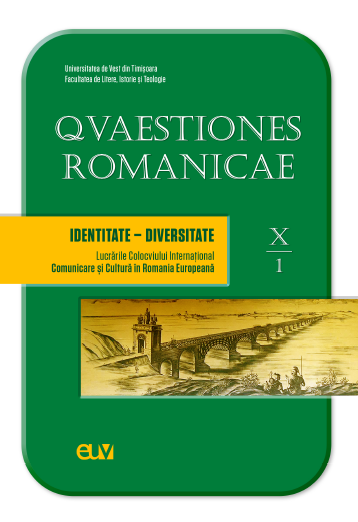Specchi paralleli: Mircea Eliade, diplomatico in Portogallo. Identità e nazionalismo culturale
Abstract: (In parallel mirrors: Mircea Eliade, diplomat in Portugal. On identity and cultural nationalism) Published in 2016, 30 years after the death of Mircea Eliade, the "Portuguese Diary", the only one uncensored by the author himself, has enjoyed the attention of specialists and a small circle of readers of his work, but unfortunately not of a commensurate editorial campaign. The diary is an unmistakable testimony to Eliade's clear, prescient vision of the danger of Bolshevism and the total destruction of the values of Romanian modernity. In parallel with the diary, it is absolutely necessary today to reconsider his writings from that period, in order to understand in context both the cultural nationalism that characterised him and his cultural and diplomatic contribution, the role and nature of the historical studies he freely undertook at that time. I propose an integrated reading of Eliade's Portuguese texts and his diary in relation to the studies that accompanied the critical edition of the latter. I will seek to demonstrate that Eliade constructs a complex textual system (diary, studies, articles), a cathedral that allows him to be both inside worlds/mirrors as well as outside them. Eliade translates himself from one textual medium to another with the same total commitment. Eliade offers us a unique case in Romanian cultural diplomacy, in the midst of the World War, constructing a historical device of the identity of the nation in whose service he is in Lisbon, of the "Latins of the East", and another, of the country towards which he makes the most profound gesture of respect: that of writing an extremely well-documented, but also philosophical, history to be transferred to the neo-Romanic (Romanian) culture at the opposite end of Europe. A Europe on fire.
Keywords: Mircea Eliade, Portuguese Journal, Portuguese writings, cultural nationalism, neo-Romanic Otherness.
Riassunto: Pubblicato integralmente in edizione critica in Romania nel 2006, 30 anni dopo la morte di Mircea Eliade, il "diario portoghese", l'unico da lui stesso non censurato, ha goduto dell'attenzione di specialisti e di cerchie (relativamente ristrette) di lettori della sua memorialistica; e purtroppo non con un'adeguata campagna stampa. Il giornale attesta, senza possibilità di smentita, la visione premonitrice di Eliade, ed estremamente chiara, sul pericolo del bolscevismo e sulla totale distruzione dei valori della modernità rumena. Parallelamente al diario, oggi è imperativo riconsiderare i suoi scritti di quel periodo, per comprendere, nel contesto che lo caratterizzò, sia il nazionalismo culturale, sia il suo contributo culturale e diplomatico, il ruolo e la natura degli studi storici intrapresi da lui stesso in quel momento, in un modo libero. Propongo una lettura integrata dei testi portoghesi di Eliade e della sua rivista in relazione agli studi che hanno accompagnato l'edizione critica di quest'ultima. Eliade costruisce un complesso sistema testuale (diario, studi, articoli), un'architettura che gli permette di essere sia dentro i mondi/gli specchi, che fuori da essi; egli si traduce da un mezzo testuale a un altro con la stessa implicazione. Eliade ci offre un caso unico di diplomazia culturale rumena, nel bel mezzo di una guerra mondiale, costruendo un dispositivo storico per l'identità della sua nazione, cioè dei "latini d'Oriente", al cui servizio è a Lisbona, e un altro omaggio, facendo un gesto profondamente rispettoso, quello di scrivere una storia del Portogallo ben documentata, da trasferire alla cultura neoromanica (rumena) dall'estremo opposto dell'Europa. Un'Europa in fiamme.
Parole chiave: Mircea Eliade, Diario portogheze, scritti portoghesi, nazionalismo culturale, alterità neoromanica.
